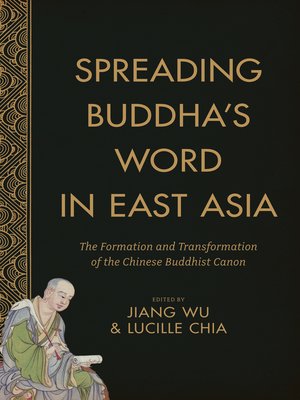Spreading Buddha's Word in East Asia
ebook ∣ The Formation and Transformation of the Chinese Buddhist Canon · The Sheng Yen Series in Chinese Buddhist Studies
By Jiang Wu

Sign up to save your library
With an OverDrive account, you can save your favorite libraries for at-a-glance information about availability. Find out more about OverDrive accounts.
Find this title in Libby, the library reading app by OverDrive.



Search for a digital library with this title
Title found at these libraries:
| Loading... |
A monumental work in the history of religion, the history of the book, the study of politics, and bibliographical research, this volume follows the making of the Chinese Buddhist canon from the fourth century to the digital era. Approaching the subject from a historical perspective, it ties the religious, social, and textual practices of canon formation to the development of East Asian Buddhist culture and enlivens Chinese Buddhist texts for readers interested in the evolution of Chinese writing and the Confucian and Daoist traditions.
The collection undertakes extensive readings of major scriptural catalogs from the early manuscript era as well as major printed editions, including the Kaibao Canon, Qisha Canon, Goryeo Canon, and Taisho Canon. Contributors add fascinating depth to such understudied issues as the historical process of compilation, textual manipulation, physical production and management, sponsorship, the dissemination of various editions, cultic activities surrounding the canon, and the canon's reception in different East Asian societies. The Chinese Buddhist canon is one of the most enduring textual traditions in East Asian religion and culture, and through this exhaustive, multifaceted effort, an essential body of work becomes part of a new, versatile narrative of East Asian Buddhism that has far-reaching implications for world history.






